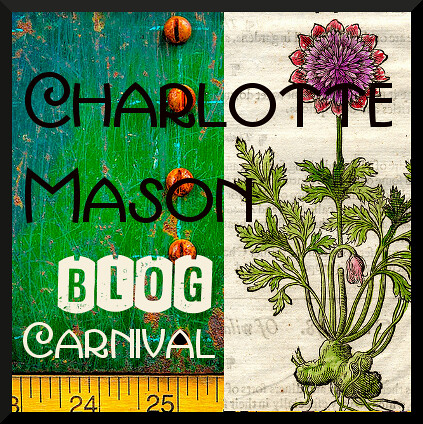Does our Culture make Heroes?
I had intended to pursue some other thoughts I came across in my reading of Charlotte Mason's, School Education. But for the whole week, every time I open the chapter, I can't get past the subject of heroes. It's been haunting me and won't let me go 'til I give it a good think.
For how many of us, is it our goal to make heroes? Have you ever even thought of that? I am of the opinion that it's pretty uncommon in modern American culture to purposefully set out to make, much less to be heroes. Americans want smart kids. If we're especially ambitious, we might hope for rich or famous kids. Mostly, we just want them to get good jobs, to earn a good living, to enjoy the good life.
But heroes? Is that what anybody is aiming for?
Should that be what we're aiming for?
I can't imagine that heroes ever happen on accident.

The mythical Greek hero Heracles, known to the Romans as Hercules,
What is a hero?
n: a person, typically a man, who is admired or idealized for courage, outstanding achievements, or noble qualities: a war hero.
(Mac dictionary Version 2.2.1)Courageous. Outstanding. Noble.
Yep. I'm convinced that's precisely what is required of Christ-followers in today's world.
Instead, popular culture isn't that much different from what CM describes as 'fine physical culture' of the English in her day, it's 'poor and narrow that [youths and maidens] may get the most, especially the most of physical enjoyment, out of life...' and 'excess in sports, excess in easy-going pleasure, excess in study, excess in desultory reading, excess in carelessness in regard to health, any excess that we have a mind to, is lawful to us if only it is expedient.'
How often have you heard echoes of popular thought, 'Well, it's my body and I can do what I want with it'? Rather self-centered, I'd say.
What of heroism? Do we give it a second thought?
Probably every kid wishes they could be a hero someday in some way. But from 4 feet tall, it all seems so unattainable. So. Far. Away. Children turned adults usually leave those Neverland-type dreams far behind altogether.
How can we help our children preserve that heroic impulse and go on to become courageous, outstanding, noble? In a word modern-day Heroes?
“It would be good work to keep to the front this idea of living under authority, training under authority, serving under authority, a discipline of life readily self-embraced by children, in whom the heroic impulse is always strong. We would not reduce the pleasures of childhood and youth by an iota; rather we would increase them, for the disciplined life has more power of fresh enjoyment than is given to the unrestrained.”
A hero is respectful of authority.
A hero is practiced in in self-reverence, self-knowledge, self-control.
The old maxim affirms that habits ARE important, even in the pursuit of happiness. “Early to bed and early to rise, makes a man healthy, wealthy and wise.”
But why? Why not just grow up in the headlong pursuit of one's own happiness? Besides, that's natural and more... normal.
The Bible says it's because, we are NOT our own. Charlotte adds, 'The divine Author of your being has given you life, and a body finely adapted for His service.' It is our work to preserve 'this body in health, nourishing it in strength, and training it in fitness for whatever special work He may give' us to do in His world.
Inspiring, isn't it? Our kids, too, can be inspired by such a high purpose, if we share it with them. Bought with a price, we ought to glorify God with our bodies.
“Life is held in trust from a supreme Authority.”
CM, v3 pg104Let us all aspire to be heroes.
::
For further exploration on encouraging true heroic impulse, Charlotte suggests, and I strongly concur, reading on the following subjects might be profitable to both parents and children.
Greek games and Greek heroes.
How a child may be trained to his physical responsibilities.
The vocation of the body.
'Innocent' excesses.
Unlawful and lawful home discipline.
The heroic impulse.
The training afforded by games.
Athletics, their use and abuse.
Parental authority in physical matters.
The right uses of self-denial.
The government, management, and training of the body.
The duty of health.
This post is based on thoughts on the first part of Chapter 10 in Volume 3, School Education by Charlotte Mason. The topic, Some Unconsidered Aspects of Physical Training, is one option for posts advocated by the Charlotte Mason Blog Carnival 2014 Schedule. If you'd like to read other posts on the subject, be sure to read all the January editions.
If you'd like to share your post with the upcoming carnival, find out how here.
Find links to past CMBCarnivals here.
*Image source info here. License for use here.
















2 comments:
I learned the most about leadership and heroism when I was in an atmosphere of stringent authority (the Naval Academy). The biggest lesson for me was to learn from good leaders as well as bad leaders. Imitate the good and figure out what made the bad bad.
excellent point, tammy. thanks for adding that. :)
Post a Comment